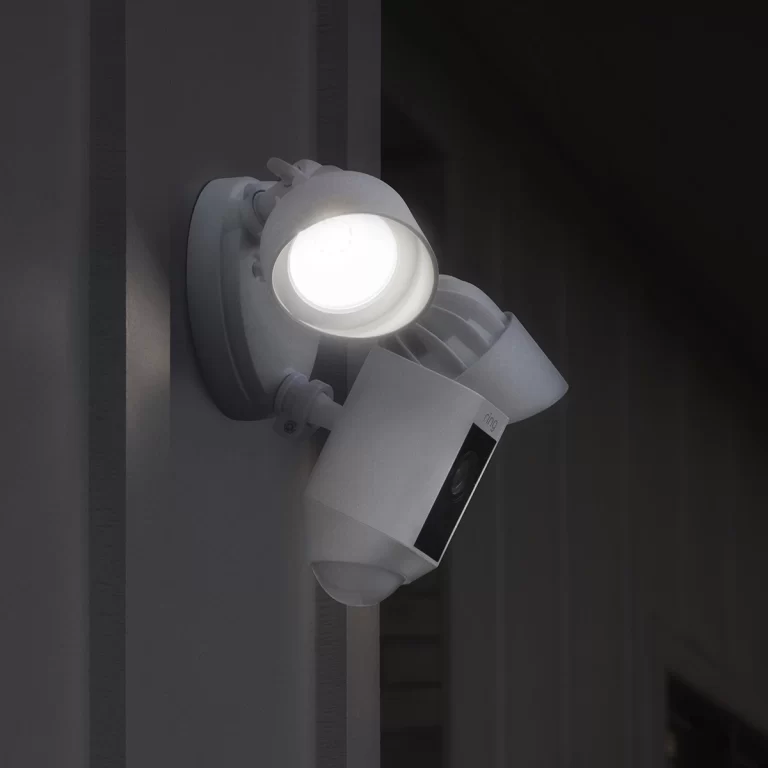How to Choose the Right Alarm System for Your Business
As a business owner, protecting your assets, data, and employees is essential to the smooth operation and success of your business. One effective way to enhance security is by installing an alarm system.
However, with a wide variety of alarm systems available in the market, choosing the right one for your business can be a daunting task. In this article, we will guide you through the process of selecting the perfect alarm system that meets your business’s unique needs.
Why is an Alarm System Important for Your Business?

Before we delve into the details of choosing the right alarm system, it’s important to understand why having one is crucial for your business. Here are some key reasons:
1. Deterrence
The presence of an alarm system acts as a deterrent to potential criminals. Knowing that your business is protected by an alarm system can discourage burglars and intruders from attempting to break in.
2. Immediate Notification
Alarm systems are designed to detect unauthorized access or suspicious activities and immediately notify you, your employees, or a security monitoring company.
This enables swift action to be taken, such as contacting the authorities and preventing or minimizing potential damage or loss.
3. Employee Safety
An alarm system not only protects your assets but also ensures the safety of your employees. In case of emergencies, such as fires or medical incidents, alarm systems can be integrated with safety protocols to alert employees and facilitate a prompt response.
4. Insurance Benefits
Having a reliable alarm system installed in your business premises can often lead to reduced insurance premiums. Insurance providers recognize the added security measures and lower the risk associated with your business, resulting in potential cost savings.
Now that we understand the importance of an alarm system for your business, let’s explore the key factors to consider when choosing the right one.
How to Choose the Right Alarm System for Your Business

Selecting the most suitable alarm system for your business requires careful consideration of various factors. Here are some essential steps to guide you through the decision-making process:
1. Assess Your Security Needs
Before exploring alarm system options, it’s crucial to assess your specific security needs. Consider the following questions:
I. What are the potential security threats to your business?
II. Do you need indoor or outdoor surveillance?
III. Are there specific areas that require special attention, such as storage rooms or server rooms?
IV. How many entry points need to be protected?
V. Do you need additional features like fire or carbon monoxide detection?
By evaluating your security requirements, you can identify the features and components that are essential for your alarm system.
2. Research Alarm System Types
Next, familiarize yourself with the different types of alarm systems available. Some common options include:
I. Burglar Alarms: These systems detect unauthorized entry through doors and windows, triggering an alarm.
II. Video Surveillance: Video surveillance systems capture footage of your premises, providing visual evidence of any incidents.
III. Access Control Systems: Access control systems manage entry to your premises through key cards, biometric scanners, or other authentication methods.
IV. Fire Alarms: Fire alarm systems detect smoke or heat and notify occupants or emergency services to prevent fire-related damages.
Understanding the various types of alarm systems will help you make an informed decision based on your specific needs.
3. Consider Scalability and Future Growth
When choosing an alarm system for your business, consider its scalability and accommodate future growth. As your business expands, you may require additional security measures or the ability to integrate with other systems.
Opting for a flexible and scalable alarm system can save you from the hassle of replacing it in the future.
4. Evaluate Monitoring Options
Alarm systems can either be self-monitored or professionally monitored. Self-monitoring involves receiving notifications on your phone or computer when an alarm is triggered.
On the other hand, professionally monitored systems are connected to a security company that monitors your premises 24/7 and dispatches authorities when necessary.
Consider your preferences, budget, and the level of security you require when deciding between self-monitoring and professional monitoring.
5. Assess Reliability and Support
Reliability is a crucial factor when choosing an alarm system. Look for reputable manufacturers and service providers known for their quality products and reliable customer support.
Read reviews, seek recommendations from other business owners, and ensure that the system you choose has a track record of dependability.
6. Budget Considerations
While it’s important to prioritize security, it’s also essential to consider your budget constraints. Determine how much you are willing to invest in an alarm system, considering both the upfront costs and ongoing maintenance expenses.
Compare prices and features of different systems to find the right balance between affordability and functionality.
7. Get Professional Advice
To ensure you make an informed decision, it’s advisable to consult with security professionals or alarm system experts. They can assess your business’s specific needs, recommend suitable alarm systems, and provide valuable insights based on their expertise and experience.
Additionally, they can guide you through the installation process and help you optimize the system for maximum effectiveness.
Conclusion
Choosing the right alarm system for your business is a critical decision that requires careful consideration. By assessing your security needs, and following the other steps explained above, you can make an informed choice that provides optimal security for your business.
Remember, investing in a reliable alarm system not only protects your assets but also ensures the safety of your employees and gives you peace of mind.
READ ALSO!!!





